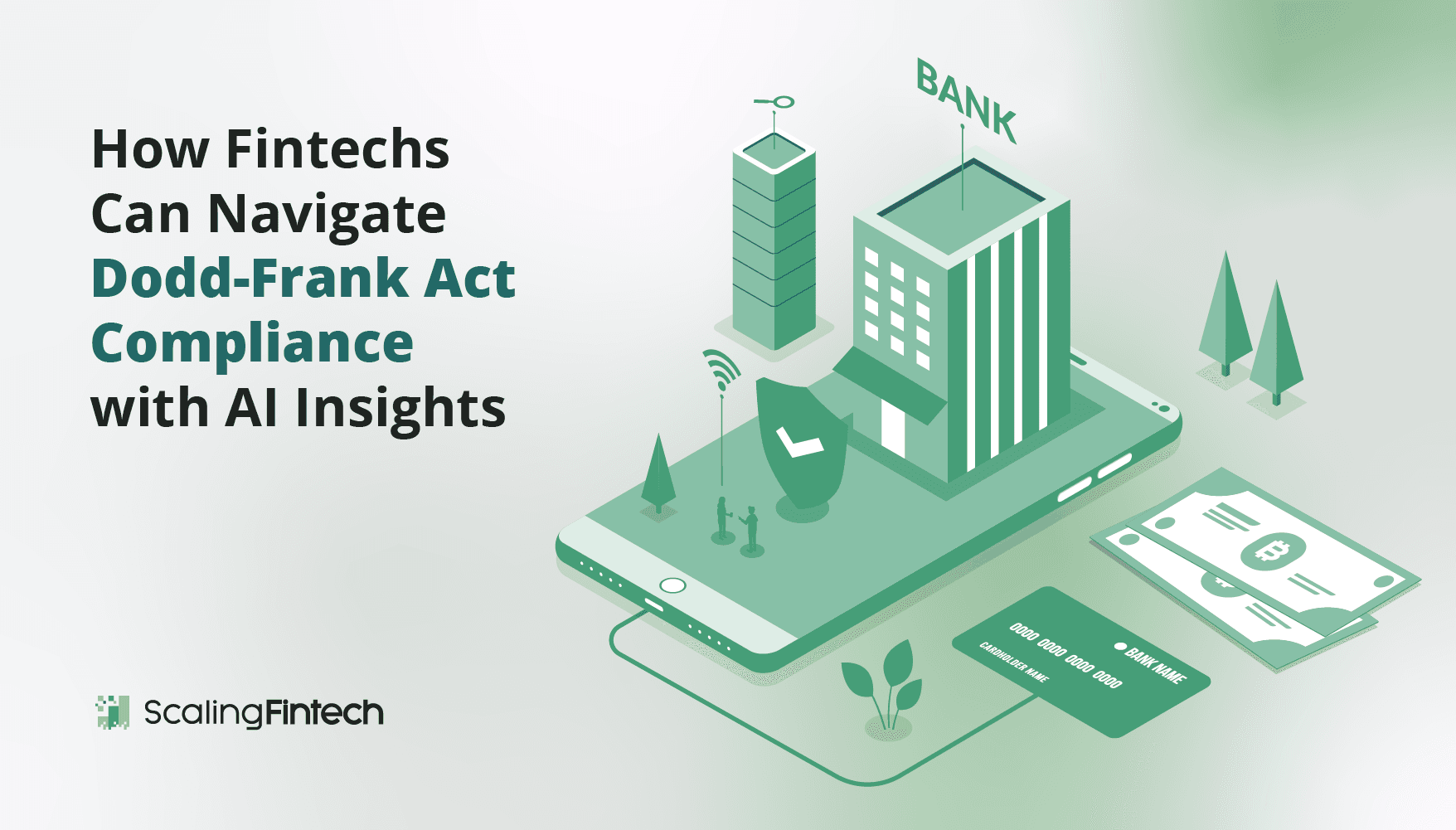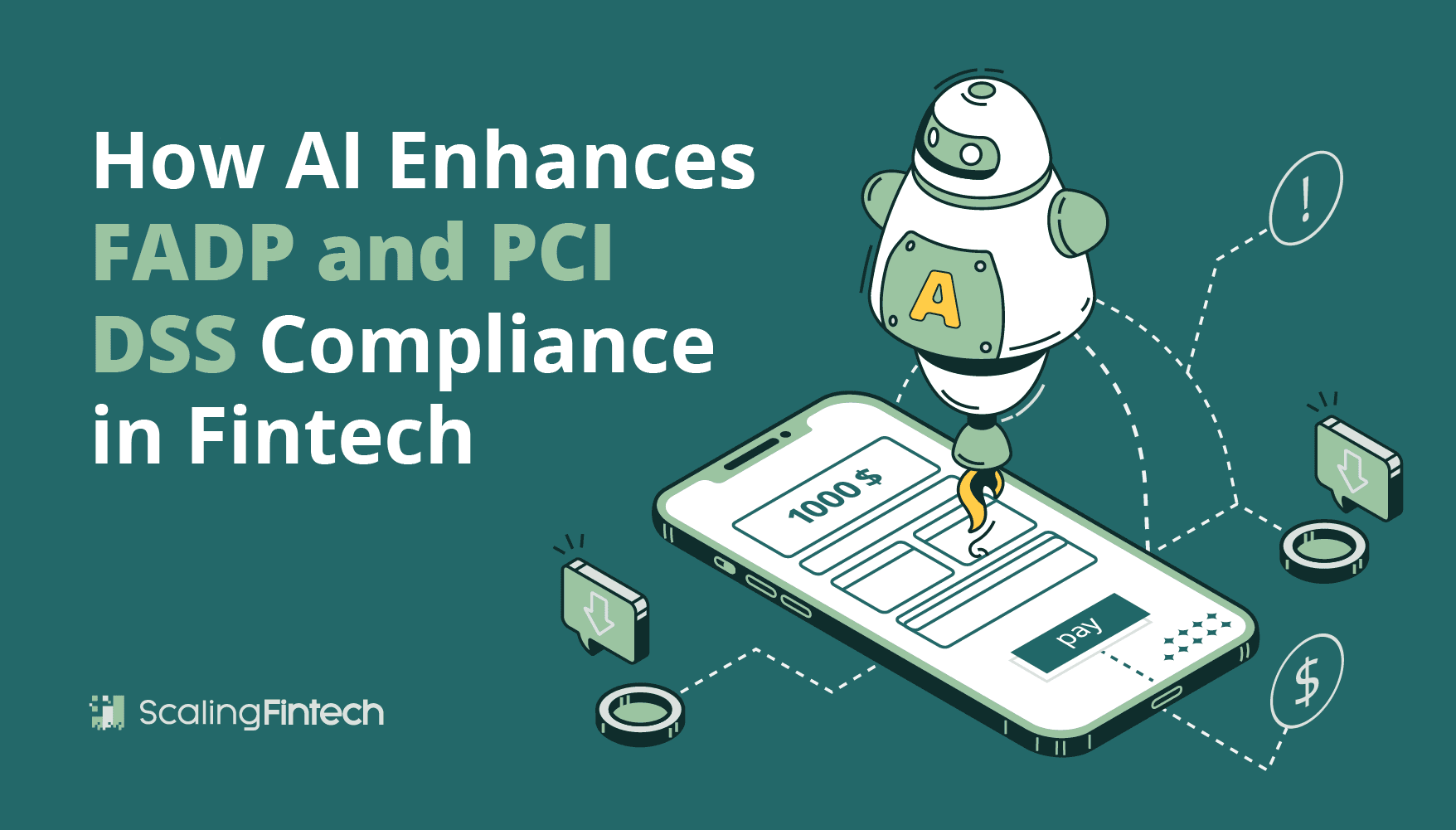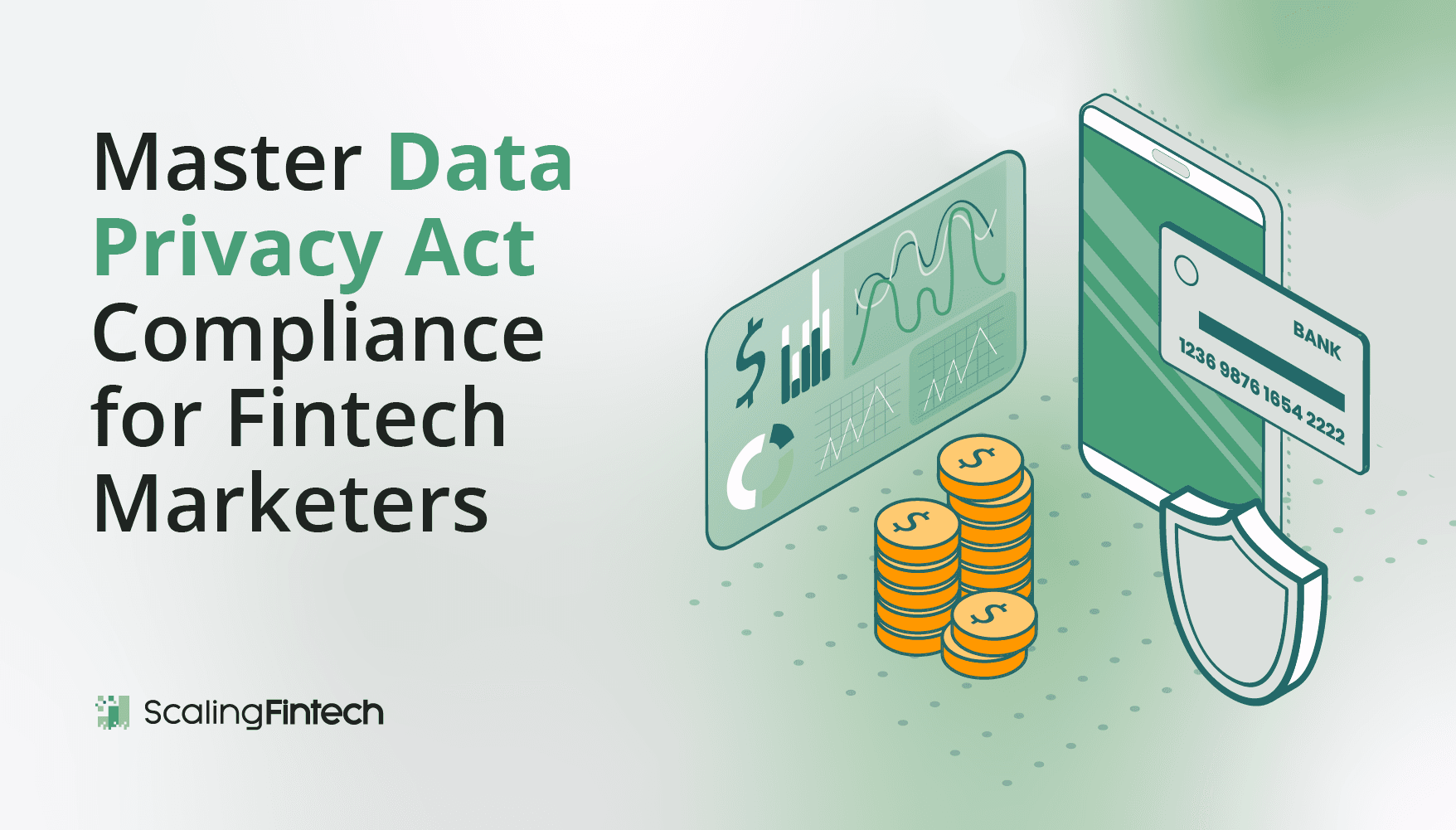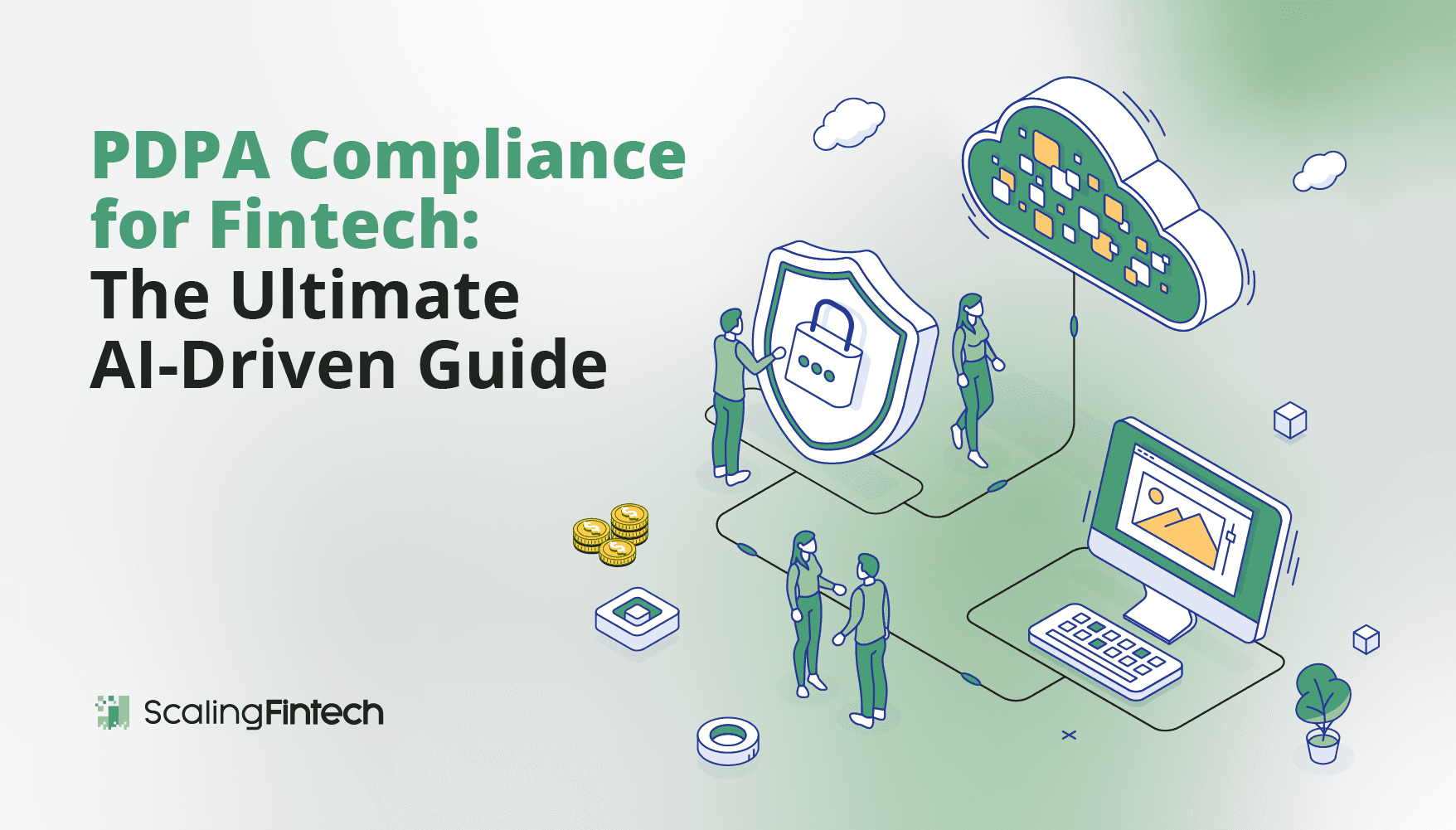Introduction
Financial regulations are constantly evolving, creating challenges for fintech companies to stay compliant while maintaining innovation. The Dodd-Frank Act, a cornerstone of financial regulation, demands transparency, robust consumer protections, and accountable decision-making. In the era of open banking and increasing regulatory compliance requirements, fintech companies must adapt quickly.
Studies reveal that fintech companies allocate up to 15% of their operating costs to compliance. Integrating AI-driven solutions can help reduce these costs, transform compliance into a competitive advantage, and streamline operations in the evolving financial ecosystem.
This guide delves into how AI can support Dodd-Frank Act compliance, offering actionable strategies, practical examples, and proven best practices to strengthen your regulatory framework in the context of fintech innovation.
Understanding the Dodd-Frank Act in the Fintech Context
What is the Dodd-Frank Act?
The Dodd-Frank Wall Street Reform and Consumer Protection Act of 2010 aims to promote financial stability and protect consumers. For fintech companies, this law sets vital guardrails to ensure ethical practices and long-term growth. The CFPB Dodd-Frank relationship is crucial for understanding the regulatory landscape.
Key Oversight Bodies Established by the Act
- Consumer Financial Protection Bureau (CFPB): Regulates consumer financial products and services and plays a pivotal role in open banking regulations.
- Financial Stability Oversight Council: Monitors systemic risks in financial markets.
- Office of Credit Ratings: Ensures the accuracy and transparency of credit ratings.
Critical Provisions Impacting Fintech Operations
One of the most relevant sections, Dodd-Frank Section 1033, grants consumers the right to access and share their financial data. This provision underpins modern fintech services such as account aggregation and personal financial management tools, fostering consumer empowerment.
| Regulatory Focus | Impact on Your Business |
| Data Access Rights | Must provide consumer data in usable electronic formats, supporting financial data access. |
| Consumer Protection | Transparent pricing and terms are required. |
| Security Standards | Strong data protection and privacy measures are mandatory, including robust cybersecurity measures. |
| Algorithmic Accountability | Automated decisions must be fair, unbiased, and traceable. |
Action Tip: Stay updated on the CFPB’s final rule on Section 1033, also known as the CFPB Rule 1033 or 1033 rule, which introduces additional requirements for secure and transparent data-sharing practices in the open banking framework.
The Role of AI in Achieving Dodd-Frank Act Compliance
Why AI is a Game-Changer for Compliance
AI empowers fintech companies to simplify compliance processes, reduce costs, and improve accuracy. According to industry data, AI-driven compliance solutions can cut operational expenses by 40-75%, revolutionizing the approach to regulatory compliance.
Key Applications of AI in Compliance:
- Real-Time Monitoring: Instantly detect suspicious transactions and reduce fraud risks.
- Regulatory Reporting: Automate documentation, saving time and minimizing errors.
- Risk Assessment: Analyze large datasets to identify compliance risks early.
- Enhanced Data Security: Leverage AI-driven encryption to safeguard consumer information and transaction information.
Challenges of Using AI for Compliance
Implementing AI within the Dodd-Frank Act framework is not without challenges:
| Challenge Area | Required Action |
| Algorithmic Bias | Conduct regular testing to prevent discriminatory outcomes. |
| Model Transparency | Document decision-making processes and maintain detailed audit trails. |
| Data Privacy | Strengthen encryption and secure data storage protocols. |
| Regulatory Alignment | Continuously monitor and update systems to align with evolving regulations, including open banking news. |
Example: The CFPB has highlighted the need for explainable AI to ensure transparency in lending decisions and avoid potential liabilities, aligning with the principles of consumer finance monitoring.
Best Practices for Dodd-Frank Act Compliance with AI

1. Build Transparency into AI Systems
Transparency fosters trust among regulators and consumers, a key aspect of consumer empowerment.
| Requirement | Implementation Strategy |
| Decision Documentation | Record AI-driven decisions with clear justifications. |
| Audit Trails | Maintain logs detailing model updates and usage. |
| Regular Testing | Conduct monthly reviews to assess algorithm performance. |
Pro Tip: Use tools like SHAP (Shapley Additive Explanations) to make AI decisions interpretable for non-technical stakeholders, enhancing consumer education.
2. Mitigate Algorithmic Bias
Bias in AI systems can lead to unfair outcomes and legal risks, affecting the competitive landscape.
- Conduct regular bias audits to identify and correct unfair outcomes.
- Train algorithms on diverse datasets to minimize systemic biases.
- Deploy safeguards to detect and correct discrimination in real time.
3. Strengthen Data Governance Practices
Data governance is vital. It must meet Dodd-Frank Act standards. It also must support the financial ecosystem.
Key Measures:
- Encrypt sensitive consumer data during storage and transmission.
- Develop a robust breach response plan to address potential data leaks.
- Monitor data access logs to identify and prevent unauthorized activities.
- Implement strict data retention policies in compliance with regulations.
4. Foster Cross-Departmental Collaboration
Compliance requires seamless communication across compliance, technology, and business teams.
Steps to Foster Collaboration:
- Host quarterly workshops to educate teams on compliance updates and open banking news.
- Create a shared dashboard for real-time monitoring of compliance metrics.
- Establish clear accountability for compliance tasks across departments.
Tools and Technologies to Simplify Compliance
AI-Driven Compliance Solutions
Modern RegTech platforms provide:
- Real-Time Alerts: Notifications for potential non-compliance incidents.
- Automated Case Management: Streamlined investigation workflows.
- Predictive Analytics: Proactive identification of emerging risks.
Example: JPMorgan Chase used AI to cut false positives in fraud detection by 30%. This saved millions and improved payment initiation security.
Testing in Regulatory Sandboxes
Regulatory sandboxes let fintechs test new solutions in a controlled setting. This supports fintech innovation.
| Component | Benefit |
| Flexible Regulations | Experiment with AI under tailored regulatory guidance. |
| Real-Time Feedback | Receive immediate insights from regulators and standard-setting bodies. |
Case Studies: Lessons Learned from Leading Fintechs
Success Stories
PayPal cut fraud losses by 50% by using machine learning to monitor transactions in real-time. This shows the power of frank fintech solutions.
Common Challenges and Solutions
| Challenge | Solution |
| Sensitive Data Handling | Implement secure-by-design data architectures and API-based data sharing. |
| High Compliance Costs | Automate repetitive tasks to reduce expenses and leverage data aggregators. |
Preparing for the Future: Trends in Dodd-Frank Act Compliance
Emerging Trends
- Enhanced Data Privacy Standards: Stricter rules to protect consumer data and account balance information.
- AI Transparency Mandates: Increasing scrutiny of automated decision-making, aligning with CFPB fintech guidelines.
- US Open Banking Regulation: Evolving landscape shaped by the CFPB open banking rule.
Proactive Steps:
- Deploy adaptive compliance frameworks with AI-powered risk assessments.
- Engage with the CFPB’s innovation initiatives to stay ahead of regulatory changes and 1033 rulemaking.
- Collaborate with data providers to ensure seamless integration with evolving standards.
How Scaling FinTech Can Help with Dodd-Frank Act Compliance
Scaling FinTech provides AI-driven, Dodd-Frank Act-compliant marketing solutions, helping FinTech companies align with evolving regulations while driving growth in the open banking era.
Why Choose Scaling FinTech?
- Precision: Customized campaigns that meet compliance goals and support consumer consent initiatives.
- Transparency: Real-time reporting ensures accountability and aligns with standardized interfaces.
- Client-Centric Growth: Maximize ROI while prioritizing compliance and third-party authorization processes.
Get Started Today: Schedule a free consultation with Scaling Fintech. We’ll explore how compliance can be your edge in the evolving financial technology landscape.
Conclusion
Compliance with the Dodd-Frank Act is tough. But, with the right strategies and tools, fintech firms can excel in regulations. They can also innovate in the open banking space.
Adopting AI-driven compliance frameworks ensures transparency, efficiency, and adaptability to evolving regulations. Start your compliance journey today. Stay ahead in the fast-paced fintech world!
Would you like additional insights or resources on this topic? Reach out to Scaling Fintech today!
FAQ

Q1: What is the Dodd-Frank Act, and why is it important for fintech companies?
A: The Dodd-Frank Act is a 2010 law. It aims to stabilize and protect consumers in the financial market. For fintech companies, it mandates compliance with regulations like fair lending practices, secure consumer data access, and transparency in automated financial services. It’s crucial for navigating the open banking landscape and maintaining regulatory compliance.
Q2: How can AI help fintech companies comply with the Dodd-Frank Act?
A: AI simplifies compliance. It automates tasks like reporting, fraud detection, and risk assessment. It also helps keep data private, ensures fair decisions, and provides real-time insights to fix compliance risks
Q3: What are the risks of non-compliance with the Dodd-Frank Act for fintechs?
A: Non-compliance can lead to:
- Fines and penalties for violations.
- Reputational damage, affecting consumer trust.
- Operational restrictions or even suspension of services.
- Negative impact on the company’s position in the competitive landscape.
Q4: How can fintech companies address algorithmic bias in AI systems?
A: To address bias, fintech companies should:
- Conduct regular audits to detect and correct bias.
- Use diverse datasets to train algorithms.
- Implement explainable AI tools that provide transparent justifications for decisions.
- Ensure compliance with consumer finance monitoring standards.
Q5: What is Section 1033 of the Dodd-Frank Act, and how does it affect fintech companies?
A: Dodd Frank Section 1033, also known as CFPB rule 1033 or the 1033 rule, gives consumers the right to access and share their financial data. Fintech companies must ensure secure data-sharing. They must comply with data governance standards. And, they must enable seamless data portability for consumers, to support open banking.
Q6: What are regulatory sandboxes, and how do they benefit fintech companies?
A: Regulatory sandboxes let fintech firms test new solutions. They do this in a controlled, regulated environment. They provide:
- Flexible application of rules.
- Real-time feedback from regulators.
- A safe space to experiment with new technologies like AI-driven compliance tools.
- Opportunities to align with our open banking regulation trends.
Q7: How can fintech companies stay ahead of evolving Dodd-Frank Act regulations?
A: Fintech companies can stay compliant by:
- Regularly updating their compliance frameworks.
- Using AI tools to monitor regulatory changes and open banking news.
- Participating in CFPB innovation initiatives for tailored regulatory guidance.
- Engaging with standard-setting bodies to anticipate future requirements.
Q8: What role does the CFPB play in enforcing Dodd-Frank Act compliance?
A: The Consumer Financial Protection Bureau (CFPB) ensures compliance by overseeing consumer financial products, investigating potential violations, and enforcing corrective actions. It also provides guidelines and supervises financial institutions to maintain transparency and fairness, particularly in areas like financial data access and consumer empowerment.
Q9: What are predictive analytics, and how can they support compliance?
A: Predictive analytics uses historical data to forecast potential risks or compliance issues. It helps fintechs detect fraud, manage risk, and prevent violations. This tech is great for tracking transactions and testing security.
Q10: How does Scaling FinTech support Dodd-Frank Act compliance?
A: Scaling FinTech offers AI-driven marketing and compliance solutions tailored to fintech needs. It helps companies grow while meeting Dodd-Frank Act rules. It does this by automating reporting, improving data transparency, and providing custom strategies. Their solutions enable API-based data sharing. They help with complex open banking rules.





